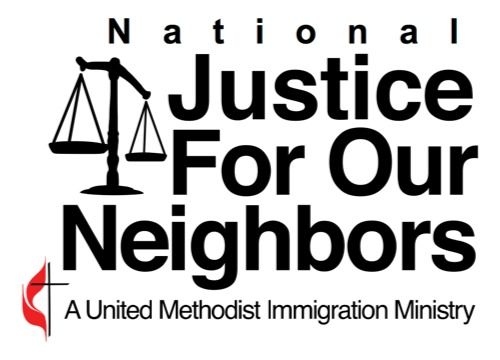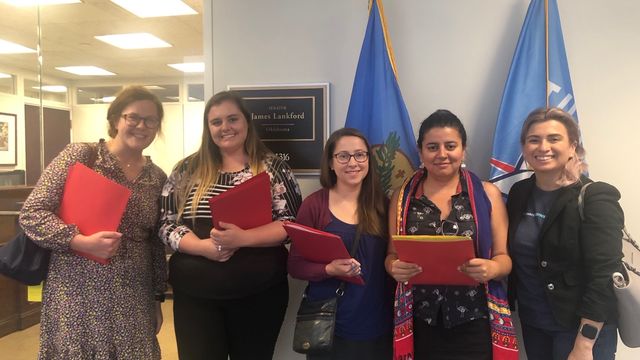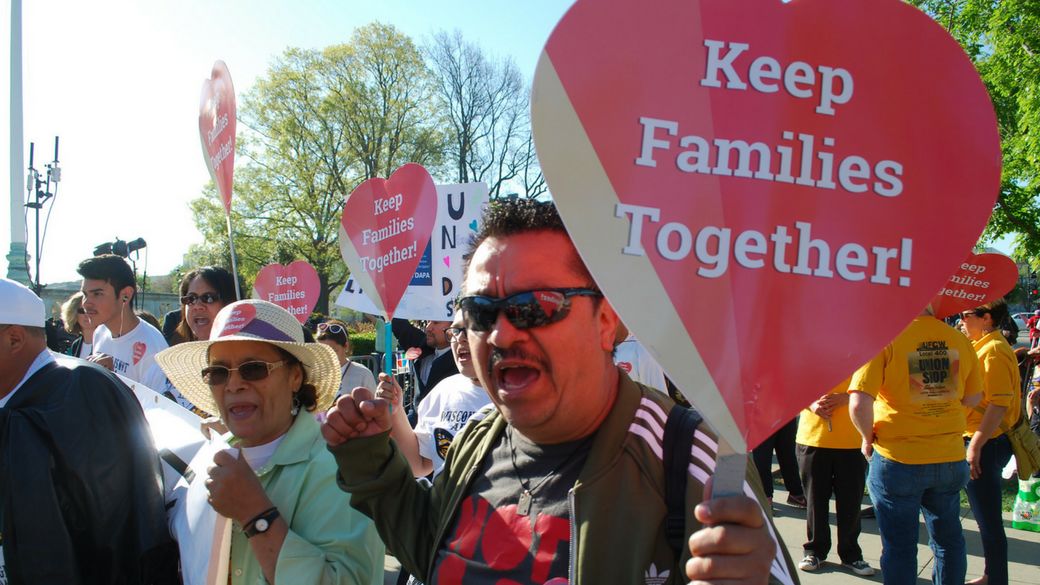Celebrating JFON's 20th anniversary
Justice For Our Neighbors, a United Methodist immigration ministry, celebrates its 20th anniversary this month. We interviewed Rob Rutland-Brown, JFON's national executive director, to learn more.

Tell us about Justice For Our Neighbors.
Justice for Our Neighbors is a network of immigration legal sites around the country connected to The United Methodist Church. These sites, each with their own staff attorneys, provide immigration legal services to low-income immigrants, advocate, and educate communities about our immigration system.
Our work enables families to remain together, ensures that immigrants can live in the U.S. safely and permanently, and helps eligible immigrants obtain authorization to work. We carry out our mission in a welcoming environment, providing free or low-cost services to our most at-risk immigrant neighbors.
As Justice For Our Neighbors celebrates 20 years of ministry, what have been some of your greatest successes?
The greatest successes, of course, are the stories of those clients whose lives have been changed through our ministry. The dad who gets to be with his four daughters here, permanently, after years of separation. The teenager who can remain here safely with her aunt and not be sent back to be killed by the gangs in Honduras from which she fled. The mother who, after 12 years, attains U.S. citizenship so she can vote and petition her family to be here. We have tens of thousands of these stories through our 20 years of service, and it’s why we do this work.
Apart from these individual success stories, we’re also proud that our network itself is growing. Our network’s staff size and budget have quadrupled in the past seven years, thanks to strong local leadership and partnerships. This is important since the need for immigration legal services has grown, and cases are much more complex and take longer. We’re thankful for the outpouring of support from congregations and individuals — within the UMC and beyond the UMC — to become involved in the work and be compassionate neighbors.
What are some of the obstacles to success?
The current administration has made it extremely difficult to effectively carry out immigration legal services. An array of policies have been enacted, or floated, or have been taken up by the courts, which essentially make it harder to immigrate to the United States. For example, young adults who came here as children can no longer apply for the Deferred Action for Childhood Arrivals program or DACA (though those with DACA status can still currently renew it).
It’s also much, much harder to pursue asylum here for those fleeing for their lives. A whole range of policies have restricted who we consider eligible or where someone must wait for months while their initial interview or their case is heard (shelters in Mexico and detention centers rather than with relatives here in the U.S.).
We are also welcoming record-low numbers of refugees into the U.S., which are the most vetted group in terms of background checks and also the most at-risk.
These are but a handful of countless examples.
All these obstacles are clearly devastating to immigrants themselves, but they’re also demoralizing and draining to those who work with immigrants, like JFON staff around the country. This changing landscape — coupled with the xenophobic rhetoric that permeates much of our public discourse — has not only made it harder for us to carry out our mission, it’s made it harder to simply be an immigrant in the U.S.
What from your faith sustains you in this work?
The notion of how to treat the stranger is one biblical concept about which there’s no gray area. It’s clear how God desires us to treat those who have journeyed here, especially those who are vulnerable.
For me, it’s also sustaining to be surrounded by people around the country who are stepping up to say, “How can I help?” Here at National JFON we are fortunate to bear witness to so many people throughout the U.S. who are committed to welcoming their neighbors and demonstrating God’s love to them. It gives me hope for the future.
What are some ways congregations can support Justice for our Neighbors?
Congregations and individuals can visit njfon.org to see if there is a JFON site in their community with which they can engage. This could include volunteering, helping with advocacy, donating, praying, and more. If there’s not a JFON near you, we would encourage you to look for other organizations and ministries serving immigrants in the community and exploring ways to partner. There are strong programs everywhere and sometimes it’s more effective to collaborate than start something new.
Also, our experience has taught us that a key to breaking down some of the ignorance and prejudice that folks have regarding immigrants is to create opportunities for engagement. That’s one reason many of our clinics rely on volunteers to help, whether it be through interpreting, interviewing clients, serving food, assisting with child care, or whatever. Once someone gets to know an immigrant’s story, they tend to better appreciate the sacrifices they’ve made to come here and to see their common humanity. This type of encounter helps create the communities of welcome that are integral to our work. So, we encourage individuals to intentionally put themselves in situations to experience these encounters and to begin connecting with immigrants who live in your community but who you maybe don’t engage with.
NJFON is supported by the United Methodist Committee on Relief (UMCOR).

